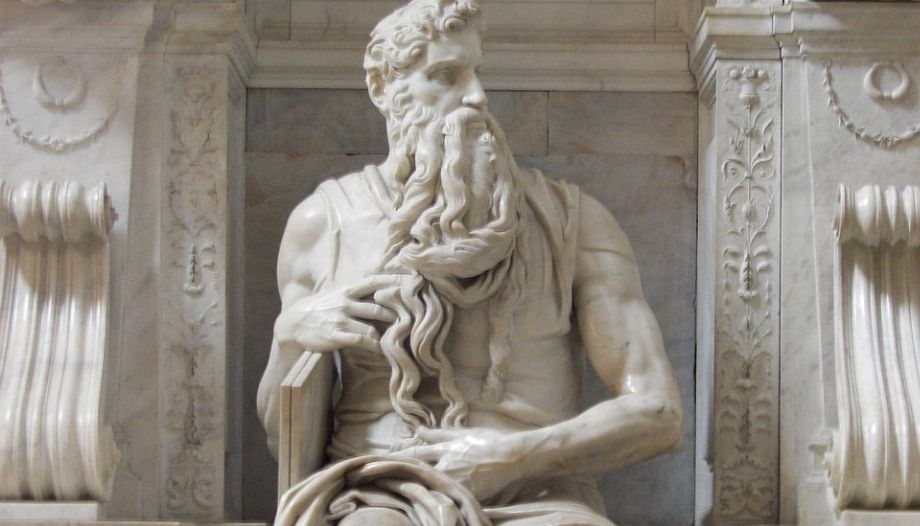Moses is known for leading the Hebrew people out of slavery in Egypt to the Promised Land, receiving the Ten Commandments from God on Mount Sinai and acting as a lawgiver for his people, as narrated in the Bible. He is considered a great prophet.
He led his people through the desert for forty years to reach Canaan, God's Promised Land. Moses received the Decalogue directly from God on Mount Sinai (Exodus 20). When the Son of God became incarnate, to the question of what is the greatest commandment of the law, Jesus said, "You shall love the Lord your God with all your heart and with all your soul and with all your mind," and "You shall love your neighbor as yourself."
St. Moses was the legislator who dictated the norms and precepts for the life of the Israelites, based on the Covenant with God. Jesus quotes him on numerous occasions in the Gospels. At the Transfiguration, the Lord appears gloriously to the apostles together with the prophets Moses and Elijah, who converse with him.
"I am who I am."
In the vatican saints' calendar a comprehensive synopsis of the life of Moses can be read, collected in the five books of the Pentateuch of the Bible. Numerous biblical facts can be cited from the lives of Mosessome of which have been captured on film.
Born in Egypt and deposited in the Nile to avoid his death, he was taken from the waters by Pharaoh's daughter, who adopted him as her son. Later, the Lord appeared to him in a burning bush and said, "I am he who am" (Exodus 3).
God said to Moses, "Go to Pharaoh king of Egypt and tell him to let the children of Israel leave his land. But Moses excused himself, "If the children of Israel will not heed me, how will Pharaoh heed me, for I am dull of speech?" And God sent him with his brother Aaron to ask for the freedom of the Hebrew people.
At the gates of the Promised Land
After the plagues of Egypt, Moses led the people of Israel through the Red Sea and the desert. He died on Mount Nebo, in the land of Moab, at the gates of the Promised Land.
Items 2052 to 2082 of the Catechism of the Catholic Church explain the Ten Commandments, the Decalogue, from the point of view of Sacred Scripture and the Tradition of the Church.







